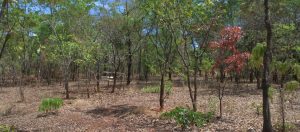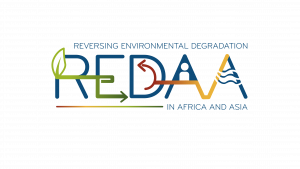LONG FALLOWS Project
The goal of the ‘Lengthening Of swidden Natural-forest re-Growth cycles through Farmer Action, Learning and Leadership Opportunities for Well-being and Social-inclusion’ Project is to enable people, nature and climate to thrive from the restoration of degraded East African Coastal forests through improved governance, capacity and knowledge.

OverviewLong-fallow swidden agriculture and agroforestry underpin millions of farmers’ livelihoods and provide climate, biodiversity and soil ecosystem services, in agricultural landscapes. There is a global decline in long-fallow swidden, contributing to environmental degradation and livelihood vulnerability. Taking a research-to-action approach, the project will work with farmers in degraded Tanzanian landscapes to develop innovative approaches that integrate sustainable forest management with long-fallow swidden agriculture. Project outcomes1. The project will increase knowledge and capacity to integrate long-fallow swidden agriculture and agroforestry with community-based forest management. This will change policy and practice benefiting small-scale farmers and forest-owning communities and promoting gender equality and social inclusion. 2. The project will develop innovative toolkits linking fallowing, forest restoration and carbon markets. 3. The project will encourage multi-stakeholder dialogue around land restoration through an integrated CBFM – long-fallow swidden and agroforestry model. Background to the Long Fallows ProjectIn Tanzania, 2.7 million hectares of forest are under community-based forest management (CBFM), with a 2031 national target of 16 million hectares. However, accelerating deforestation, forest fragmentation and land privatisation mean that urgent action is needed, if this target is to be achieved. The project concept is based on conversations with communities around the need for forest management solutions that meet immediate livelihood needs. By integrating long-fallowing and nutrition objectives in CBFM, the project aims to demonstrate win-win scenarios for livelihoods, climate and nature. |
Project approachThe project will generate innovative research on the impact on people, nature and climate of integrating long-fallow swidden agriculture with CBFM with the intention that this transforms policy and practice in the agriculture and forestry sectors. The project aims to deliver positive impacts on social inclusion with a focus on reducing inequalities linked to gender, age, ethnicity, disability and other socially-constructed categories. Project locationThe project will be active in three villages in Nachingwea District, Lindi Region. Project DurationMarch 2024 – December 2027. Funding
Implementing PartnersThe project is a partnership between the Tanzania Forest Conservation Group (TFCG), the Community Forest Conservation Network of Tanzania (MJUMITA) and the University of Leeds. |

 The project is financed by the REDAA programme. Reversing Environmental Degradation in Africa and Asia (REDAA) is a programme that catalyses research, innovation and action in Africa and Asia by offering grants and technical support. It is funded by UK International Development from the Foreign, Commonwealth and Development Office and managed by IIED. For more information, visit
The project is financed by the REDAA programme. Reversing Environmental Degradation in Africa and Asia (REDAA) is a programme that catalyses research, innovation and action in Africa and Asia by offering grants and technical support. It is funded by UK International Development from the Foreign, Commonwealth and Development Office and managed by IIED. For more information, visit